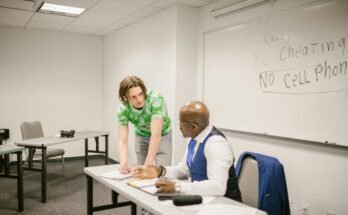In the realm of education and professional development, there is one debate that never seems to go away: practical experience versus theoretical knowledge. Theoretical knowledge provides a solid base of principles, formulas, and frameworks to follow, but often isn’t enough to prepare us for the challenges we will face when we buckle up. Practical experience provides us the ability to use what we learnt, enough capability to adjust to the unexpected, and reasoning abilities that never come from just theory.
Think about cooking. We can study recipes, watch videos and study the techniques without needing to be in a kitchen. However, until we arrive in the kitchen and handle the ingredients and have freedom to screw up things, we don’t know how to make it, or how we might make it better. That is the magic of practice, making theoretical knowledge an applicable skill.
In this paper, we will explore why practical learning is better than theoretical learning and what it can offer you in your respective professional field. We will provide examples in various fields, provide the positives of practical experience vs theoretical experiences, and we will discuss how to find an acceptable balance.
Introduction
When it comes to learning and development, it seems like a lot of people ask the question of theory vs. practice. Theory has its place in terms of outlining ideas and concepts, but only practical experience prepares us for the real-world scenarios that challenge us. This is exactly why so many people echo this sentiment; the reason why practical experience beats theory isn’t a preference, it is a fact that can be supported by successful case studies from different industries.
Limitations of Theoretical Learning
Theoretical learning, which is everything from studying textbooks to listening to lectures or research articles, does have a value to it. It provides an understanding of the material, it introduces frameworks, and sometimes it allows us to see a broader perspective. However, theoretical knowledge is limited because:
It often assumes optimal conditions, which do not exist in the real world.
It does not take into account human behavior, unforeseen problems, or limited resources.
It can be, at times, abstract without ever getting to a place that is helpful.
Think about it in terms of learning how to drive a car. You can study rules of the road all day long, but until you jump behind the wheel, you will never know what it feels like to depend upon that knowledge to handle traffic, weather, or other pressure.
The Value of Experience
Practical experience discusses how to take knowledge and apply it directly to real situations. Experience takes theory out of the school and applies it to a reality. That is why experience is better than knowing theory, because you develop skills that you can use right away.
- Learning Skills, Not Concepts
When you are practicing, you are not just repeating memorization, you are actually doing something. A medical student will learn more about surgeries from watching and assisting in them, than reading about them.
- Learning from Mistakes
Theory does not teach you how to overcome failure. In practice, mistakes are noticeable, but they also become recognizable teachers. Each failure teaches you something to improve on.
- Learning Confidence
Using knowledge in practice builds confidence. You learn about the things that work, and recognize what needs to be adapted if it does not work out as you planned.
- Learning to Adapt to What Happens
Work, business, or life do not go according to a script. Practical experience teaches you how to adapt and problem-solve and be creative in a way that you are not going to learn with theory.
Reasons Why Practical Experience Enhances Theory
Practical experience doesn’t negate theory. However, the ideal scenario is for theory to be blended with practice. Theory provides the “why”, while practice provides the “how”.
Engineers must know about physics in order to design. At the same time, they require practical experience to build anything that is safe.
An entrepreneur can read a pile of business books, yet, without real-world attempts, they will never really know what customers need.
A teacher may learn about teaching theory, but it is the classroom that will give them true practice and knowledge.
Examples From Real Life Where Practical Experience is More Valuable than Theory
Technology: Many of the best entrepreneurs (i.e., Bill Gates, Steve Jobs) learned more by building products than by studying business theory.
Medicine: Doctors study from books, but their skills are implemented in hospitals by way of internships and residencies.
Sports: An athlete could learn a strategy from a coach, though their performance can never improve until they are on the pitch actually practicing.
False Perceptions
“Theory is worthless.” AMBIGUOUS. Theory lays the foundation.
“Practice is all that needs to be done.” Certainly, without understanding the fundamental principles, they will just keep redoing the same mistakes.
Finding a balance is key; however, all things being equal, practical experience exceeds theory because it prepares for reality.
Frequently Asked Questions About Why Practical Experience Trumps Theoretical Knowledge
- Why is practical experience more important in a career?
Because employers are paying for skills to solve problems right away, not to have knowledge of concepts. - Can theory ever substitute practice?
Definitely not. Theory gives you direction, practice makes you competent in a real life. - In which field or occupation does practical experience benefit most?
Medicine, engineering, business, teaching, and virtually every profession where problem-solving is paramount. - How do I gain practical experience as a student?
Internships, apprenticeships, volunteering, side projects, hands-on training.
Conclusion
When it comes to the battle of theory vs. practice, the choice is clear. Why practical experience trumps theoretical knowledge, comes down to one fact—real life does not happen on paper. Theories give us direction, practice gives us mastery.
If you truly want to grow, in your career, education, or personal life, you need to acquire hands-on experience. Combine it with theory and you have the best of both worlds; understanding + the ability to act on it.



